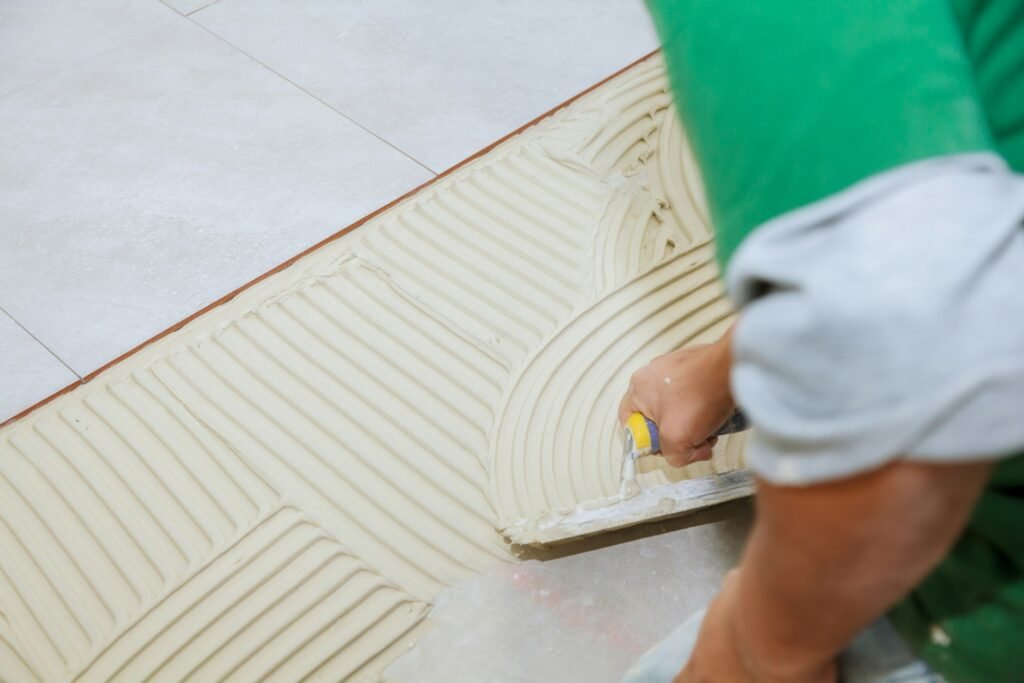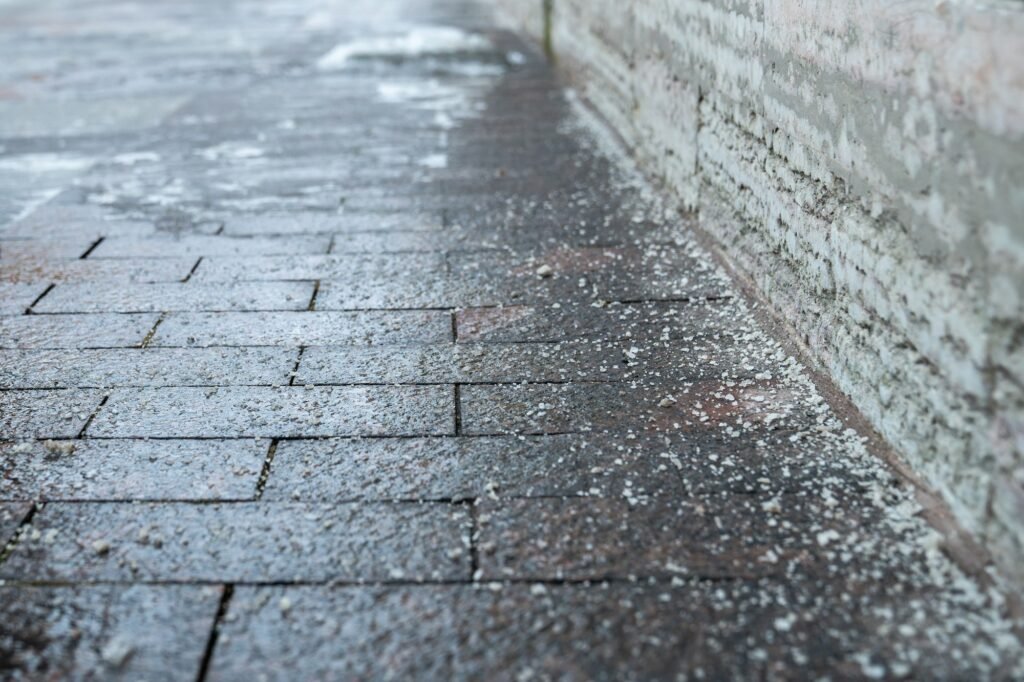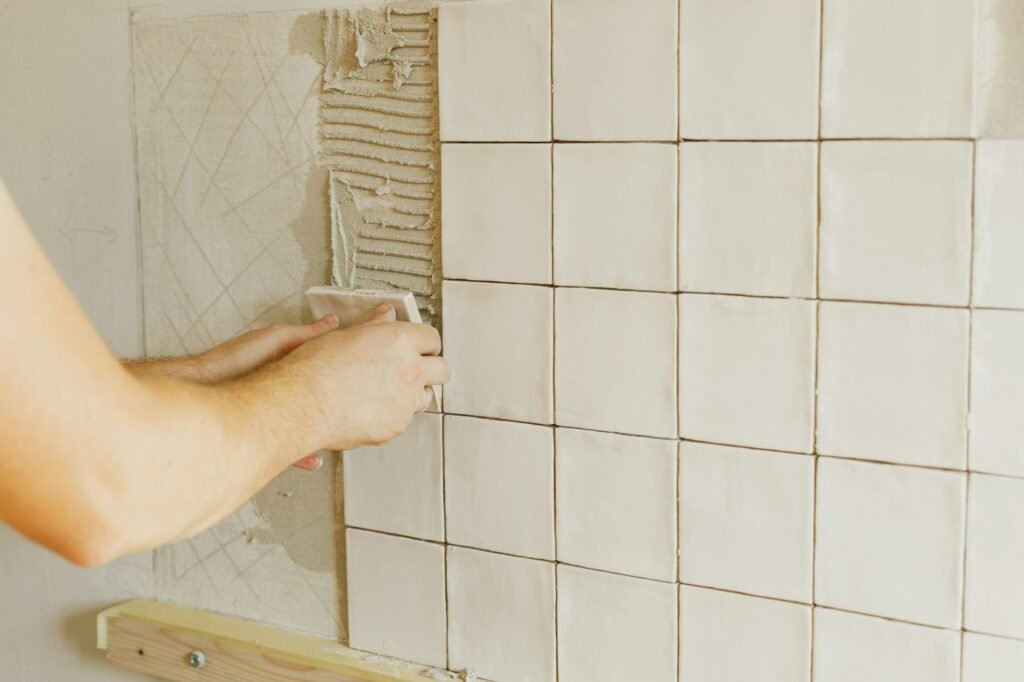
As a key material in construction and decoration projects, tile adhesive is widely used in the paving of ceramic tiles and stones to provide reliable adhesion and durability. Different types of tile adhesive are suitable for different construction needs, among which C1 and C2 tile adhesive are the two most common types. They have significant differences in performance and application, and the correct choice can ensure improved construction quality and long-term use. This article will take an in-depth look at C1 and C2 tile adhesives from various aspects including definition, performance, application, and selection guide.
1. What are C1 and C2 tile adhesives?
C1 and C2 tile adhesives are two types classified according to the European standard EN 12004. The EN 12004 standard specifies the basic performance indicators of ceramic tile adhesives, including bonding strength, anti-slip ability, water resistance, and durability. This standard provides construction personnel and users with an important reference for selecting appropriate materials.
C1 tile adhesive: C1 tile adhesive is a tile adhesive with basic performance. Its bonding strength is relatively moderate and it is suitable for use in general indoor environments, such as tile paving on ordinary walls and floors. C1 tile adhesive has a wide range of applications, but it is mainly concentrated in situations with lower requirements.
C2 tile adhesive: C2 tile adhesive is a high-performance tile adhesive with higher bonding strength and anti-slip performance. It is widely used in situations that require high bonding strength and durability, such as large-size ceramic tiles, exterior walls, floor heating systems, etc.
2. The main performance differences between C1 and C2 tile adhesives
When choosing a tile adhesive, it is important to understand the performance differences between C1 and C2 tile adhesives, which directly affect the application scope and effect of tile adhesive.
Bonding strength:
C1 tile adhesive: The bonding strength is relatively low, generally around 0.5 MPa, suitable for tile paving in ordinary indoor environments.
C2 tile adhesive: It has high bonding strength, usually above 1.0 MPa, which can meet more stringent construction requirements, such as the laying of large-sized ceramic tiles, ensuring its long-term stability in complex environments.
Anti-slip performance:
C1 tile adhesive: It has moderate slip resistance, suitable for wall and floor paving of standard-size ceramic tiles. When used on vertical walls, C1 tile adhesive is effective in preventing tiles from sliding before drying, but may not perform well with larger or heavier tiles.
C2 tile adhesive: It has stronger anti-slip performance and is especially suitable for paving large-sized and heavy-duty ceramic tiles to ensure that the ceramic tiles remain stable during construction and will not slide due to gravity or other external forces.
Water and weather resistance:
C1 tile adhesive: It is relatively weak in water resistance, mainly suitable for dry indoor environments. If used in a humid environment, such as a bathroom or kitchen, additional waterproofing may be required.
C2 tile adhesive: With excellent water resistance and weather resistance, it is very suitable for use in exterior walls, bathrooms, swimming pools and other environments that require high water resistance and weather resistance. C2 tile adhesive can effectively resist long-term moisture erosion and prevent tiles from falling off or discoloring.

Applicable base surface:
C1 tile adhesive: It is suitable for stable and flat base surfaces, such as cement mortar floors, plastered walls, etc. For these base surfaces with relatively simple foundations, C1 tile adhesive can provide sufficient bonding force.
C2 tile adhesive: It can be used on more complex or challenging substrates, such as old tile surfaces, wood or gypsum board walls, and metal surfaces, etc. The high adhesion of C2 Tile Adhesive ensures long-term stability on these substrates.
3. Analysis of application scenarios of C1 and C2 tile adhesives
After understanding the performance differences between C1 and C2 tile adhesives, we further explore their applicable scenarios in practical applications.
Indoor wall and floor tile laying
In ordinary indoor environments, such as the walls and floors of living rooms and bedrooms, C1 tile adhesive can usually meet the needs. Especially for small format or lightweight tiles, C1 tile adhesive is cost-effective.
For some special indoor environments, such as kitchens or bathrooms, although C1 tile adhesive can also be used, in order to improve durability and moisture resistance, it is more secure to choose C2 tile adhesive.
Large format tiles and stone paving
With the increasing demand for large-sized ceramic tiles and natural stones in modern decoration, C2 tile adhesive is becoming more and more widely used. Large-format ceramic tiles have high requirements for adhesion and anti-slip performance. C2 tile adhesive can provide sufficient support to prevent large-format ceramic tiles from slipping or falling off due to their own weight.
Exterior wall tile laying
Exterior wall tiles are exposed to the outdoor environment for a long time and face harsh conditions such as wind, rain, temperature changes, etc. Therefore, it is very important to choose C2 tile adhesive which has stronger weather resistance and water resistance to ensure that the exterior wall tiles remain firm and do not fall off under changing climate conditions.
Tile laying in floor heating systems
The floor heating system requires the tile adhesive to have good elasticity and thermal expansion resistance to adapt to the temperature changes produced by the floor heating system. The high-performance characteristics of C2 tile adhesive make it the first choice for tile laying in floor heating systems, and it can effectively resist thermal expansion and contraction caused by temperature changes.
Wet area applications
In extremely humid environments such as swimming pools and saunas, tile adhesives not only need to have excellent water resistance but also must be able to withstand the impact of long-term water immersion on the adhesion. Due to its excellent water resistance and adhesion, C2 tile adhesive can ensure that the tiles remain stable in these environments for a long time and are not easy to fall off.
4. Selection Guide for C1 and C2 Tile Adhesive
Choosing the right tile adhesive not only ensures construction quality but also saves cost and time. The following is a purchasing guide for different construction needs:
Choose according to tile type and specification
Small size or light tiles: Just choose C1 tile adhesive, which is cost-effective and sufficient to meet ordinary needs.

Large-sized, heavy-duty tiles: It is recommended to choose C2 tile adhesive to ensure stability during the paving process and long-term use.
Choose according to the construction environment
Indoor dry environment: C1 tile adhesive is suitable and low cost.
Humid or external environment: C2 tile adhesive is more resistant to the effects of moisture and climate change, ensuring the long-term stability of the tiles.
Consider the complexity of the base
For stable base surfaces: C1 tile adhesive is usually sufficient and is suitable for flat base surfaces such as cement mortar and plaster.
For complex or old base surfaces: C2 ceramic tile adhesive’s high bonding force can effectively deal with various complex base surfaces and ensure construction quality.
Consider the long-term durability of your construction
Short-term or temporary paving: C1 tile adhesive is more cost-effective.
Long-term durability or special environments: Choose C2 tile adhesive to avoid later maintenance issues and ensure the long-lasting stability of your tiles.
5. Conclusion
C1 and C2 tile adhesives play a vital role in modern construction and decoration. Their respective performance and scope of application determine the choice in different situations. By correctly understanding their differences and characteristics, construction workers and consumers can more effectively choose suitable materials to ensure the quality and aesthetics of the project.
Whether you choose C1 or C2 tile adhesive, the preparation before construction and the meticulous operation during construction are equally important. Only by fully understanding the material properties and combining them with the actual construction environment and needs can we ensure the success of ceramic tile paving and avoid subsequent problems.


